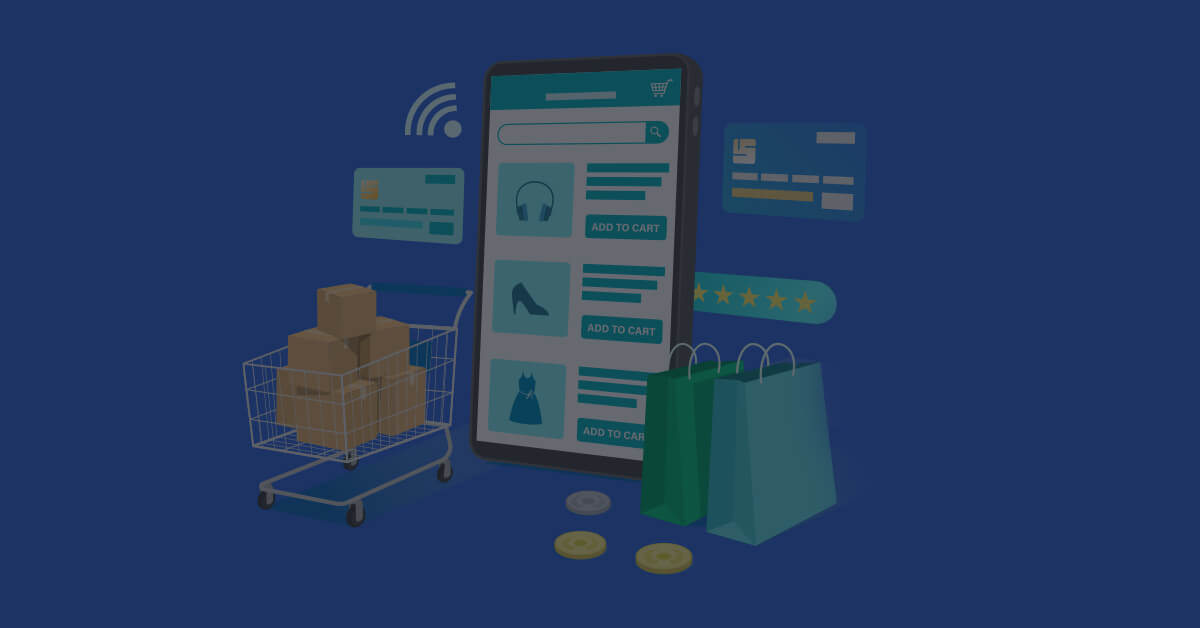The global eCommerce sector crossed sales worth USD 4T this year. So, the best time to have started an eCommerce store was yesterday; and the second-best time for it is today!
While the journey from ideating an online store to fulfilling orders has become simpler in the recent past, it is still full of choices. Picking the best eCommerce platform is one such commitment that determines the fate of your online business. To make this process easier, we have rounded up the top eCommerce platforms and dissected them from all angles so that you can make the smarter choice. Let’s dive right in!
Considerations Before Choosing An eCommerce Development Platform


Before comparing the top eCommerce platforms, let us look at a few variables that may influence your choice. These include:
Customer-Centricity
As eCommerce enters the emotion economy, customer-centricity reigns supreme. Brands that focus on the UI/UX, value proposition, and omnipresence of their eCommerce store will stand out.
Open Source vs. SaaS vs. Headless
When checking out eCommerce platforms, you may have come across the terms open-source, SaaS, and headless. Open-source platforms are truly customizable, with the brand taking responsibility for everything – from building to securing the website. With SaaS, that is, software-as-a-service, you can effectively rent the platform developed by a vendor. And finally, headless eCommerce is a variation of SaaS that focuses primarily on the commerce aspect of the website.
Budget
Naturally, budget is one of the top considerations to keep in mind while undertaking the task of taking your business online. While calculating the budget, consider the total cost of ownership, which will cover everything from designing and programming to hosting and maintenance.
Integrations
Even the best eCommerce platform cannot have everything. And to complement these shortcomings, you will need integration with third-party apps and plugins to perform that task. As such, eCommerce platforms should ideally support as many integrations as possible.
Implementation Roadmap
Choosing the best eCommerce platform is just the first step. You also need to plan ahead until the launch of your website. As such, you want a solution that is quick and easy to deploy and offers the fastest time to market. Remember, every second you are not selling, you are incurring losses.
6 Best eCommerce Development Platforms Worth Considering
Now that you may have a clearer picture of what you have in mind, let us take a look at the top eCommerce platforms:
- Shopify

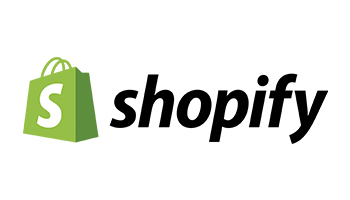
When it comes to eCommerce platforms, Shopify needs no introduction. It is currently occupying the lion’s share of 29% of the market share of eCommerce platforms in the US, which is not a first for Shopify.
Features
- Subscription-based service.
- Basic customer management.
- Mobile-friendly with editable HTML/CSS.
- Unlimited bandwidth
- Good reporting capabilities.
Pros
- Highly responsive and easy to use.
- Excellent for dropshipping.
- Apps for one-click selling are available.
Cons
- Needs a lot of work for SEO and content marketing.
- Checkout is not customizable.
- Apps can be expensive.
- BigCommerce

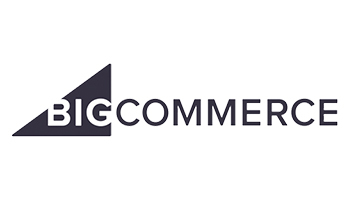
BigCommerce has been a popular choice in the B2B and B2C segments, which speaks volumes about its versatility. And while the initial learning curve is a bit steep, the imminent pay-off is well worth the effort.
Features
- Subscription-based service or standalone software.
- Customer management through segmentation.
- Mobile-optimized structure.
- Host-dependent bandwidth.
- Advanced and in-depth reporting.
Pros
- Excels at selling across multiple channels.
- Performs excellently at SEO
- Flexible and scalable.
Cons
- Load speeds can be inconsistent.
- Does not offer one-click selling.
- Stores with high-volume sales pay more.
- WooCommerce

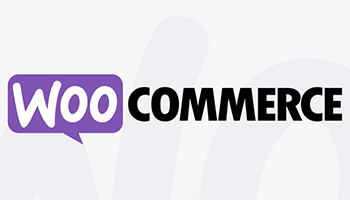
Interestingly, WooCommerce is not technically an “eCommerce platform” but rather a free plugin that transforms any WordPress site into an eCommerce store. Due to the familiarity offered by the WordPress environment, WooCommerce has been an excellent stepping stone for small businesses that are just getting started.
Features
- Standalone software that needs to be installed on a server.
- Customer management is available only through plugins.
- Mobile-friendliness depends on the theme.
- Host-dependent bandwidth.
- Good reporting capabilities.
Pros
- Comes with strong SEO capabilities.
- Supports multiple service providers.
- Apps for one-click selling are available.
Cons
- Difficult to debug and troubleshoot.
- Requires several extensions and integrations.
- Hosting can be expensive.
- Magento

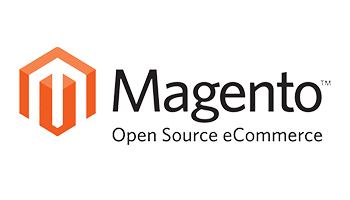
While Magento gets a bad rap for being complicated, it also deserves credit for its powerful and advanced capabilities, be it SEO, customization, or integration. Further, the launch of Magento 2 has elevated the platform to a whole new level.
Features
- Subscription-based service.
- Basic customer management.
- Mobile-friendly.
- Unlimited bandwidth.
- One of the best analytical modules with in-depth and granular reporting.
Pros
- Loaded with custom features and functionalities.
- Powerful optimization for search engines.
- One-click selling is possible through apps.
Cons
- Themes are priced disproportionately.
- Slowing down and performance issues.
- Requires high-level eCommerce development skills.
- Wix

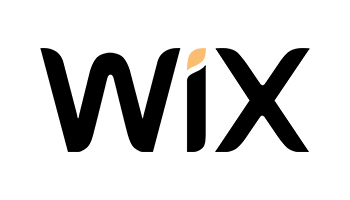
Wix is yet another starter-level eCommerce platform that allows businesses to establish an online presence without the hassle of programming or coding. At the same time, it does not compromise on its customization capabilities. In short, a win-win situation for most businesses.
Features
- Subscription-based service.
- Basic customer management.
- Mobile-friendly with mobile editing available.
- Unlimited bandwidth.
Pros
- Offers several stunning themes for free.
- Easy to set up and use.
- Supports eCommerce marketing automation.
Cons
- Fails to deliver on the SEO front.
- Weak integration with Amazon.
- Disappointing upselling and cross-selling capabilities.
- Squarespace


Squarespace proved to be a dark horse that went on to occupy a significant market share amongst the top eCommerce platforms! This rising popularity can be accredited to the platform’s ability to empower users with no technical background to create rich and engaging websites.
Features
- Subscription-based service.
- Basic customer management.
- Mobile-friendly with mobile editing available.
- Unlimited bandwidth and storage.
- Excellent reporting and analytics.
Pros
- Quick and easy to set up.
- Ideal for simple stores.
- Offers attractive template designs.
Cons
- Supports eCommerce integrations.
- Limited customer support.
- Very few payment gateways are available.
You’ve Made Your Pick, Now What?
The above information can set you on the right path of choosing the best eCommerce platform available for your business. As stated previously, this choice is just the starting point, and now you will have to strategize how you will realize the goal of building your website. While devising such a roadmap, bear in mind the future readiness of your store.
The eCommerce industry is already saturated, and the competition will only get stiffer in the time to come. Against this background, leaving room to grow and improve shall maintain business resilience in the long run. Laying the foundation for marketing automation is one such step in this direction. Businesses can leverage it to develop full-funnel sales journeys that can execute automatically and without any human intervention at any stage.
As such, to facilitate such future considerations, you will have to take measures now. Build your store on a robust platform, have paid media integration capabilities, integrate with a powerful CRM – the list goes on.
Surely, this road you plan to travel on will be full of twists, turns, and even blockages. Having a trusted and reliable partner on this journey can definitely ease the impact of such obstacles. As a leading eCommerce marketing services provider and an industry expert in MarTech, Amura Marketing Technologies is the eCommerce marketing agency that you can turn to for meeting all your organizational goals. Contact our experts to know more about how we can help you, and we will do the rest!

